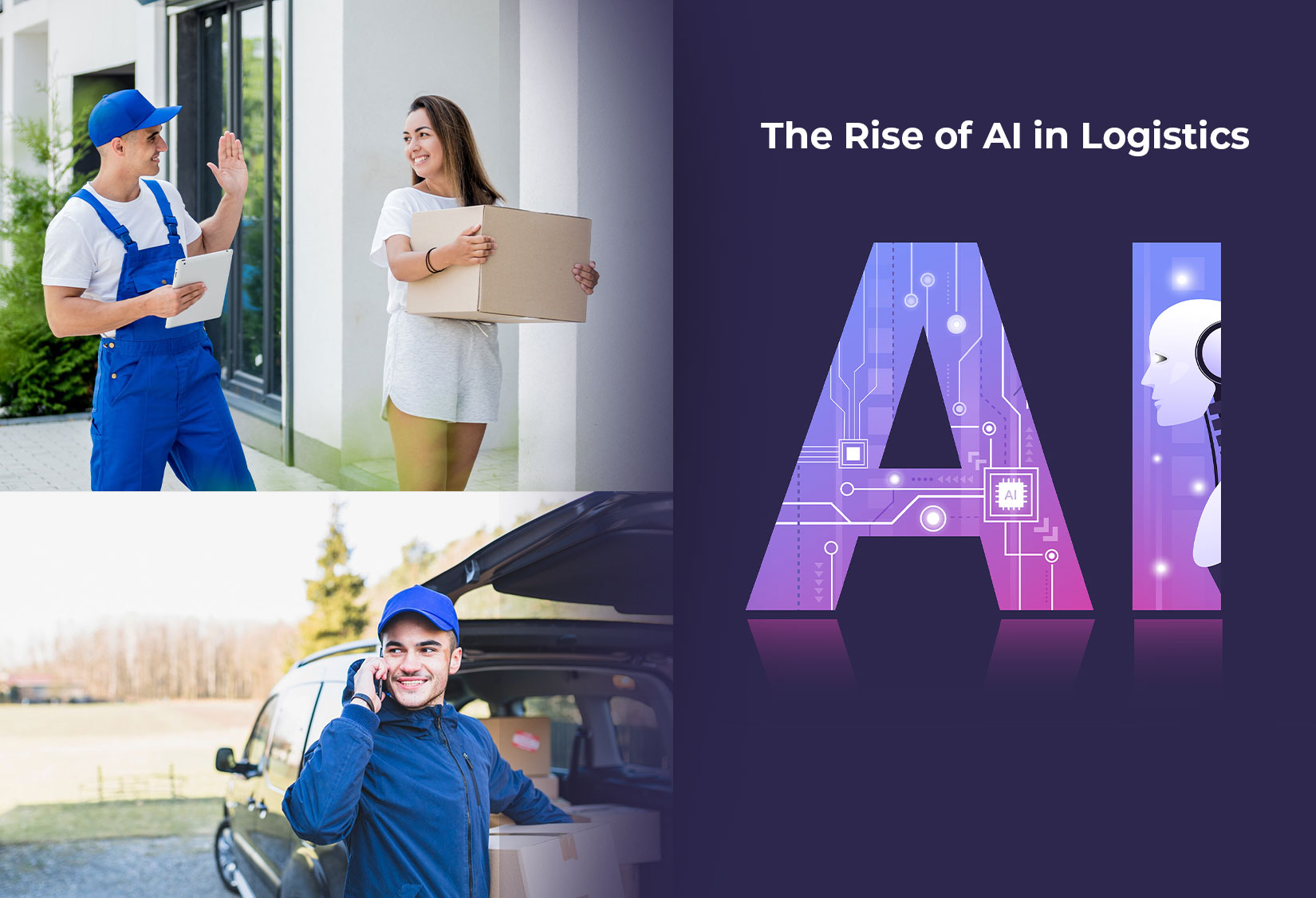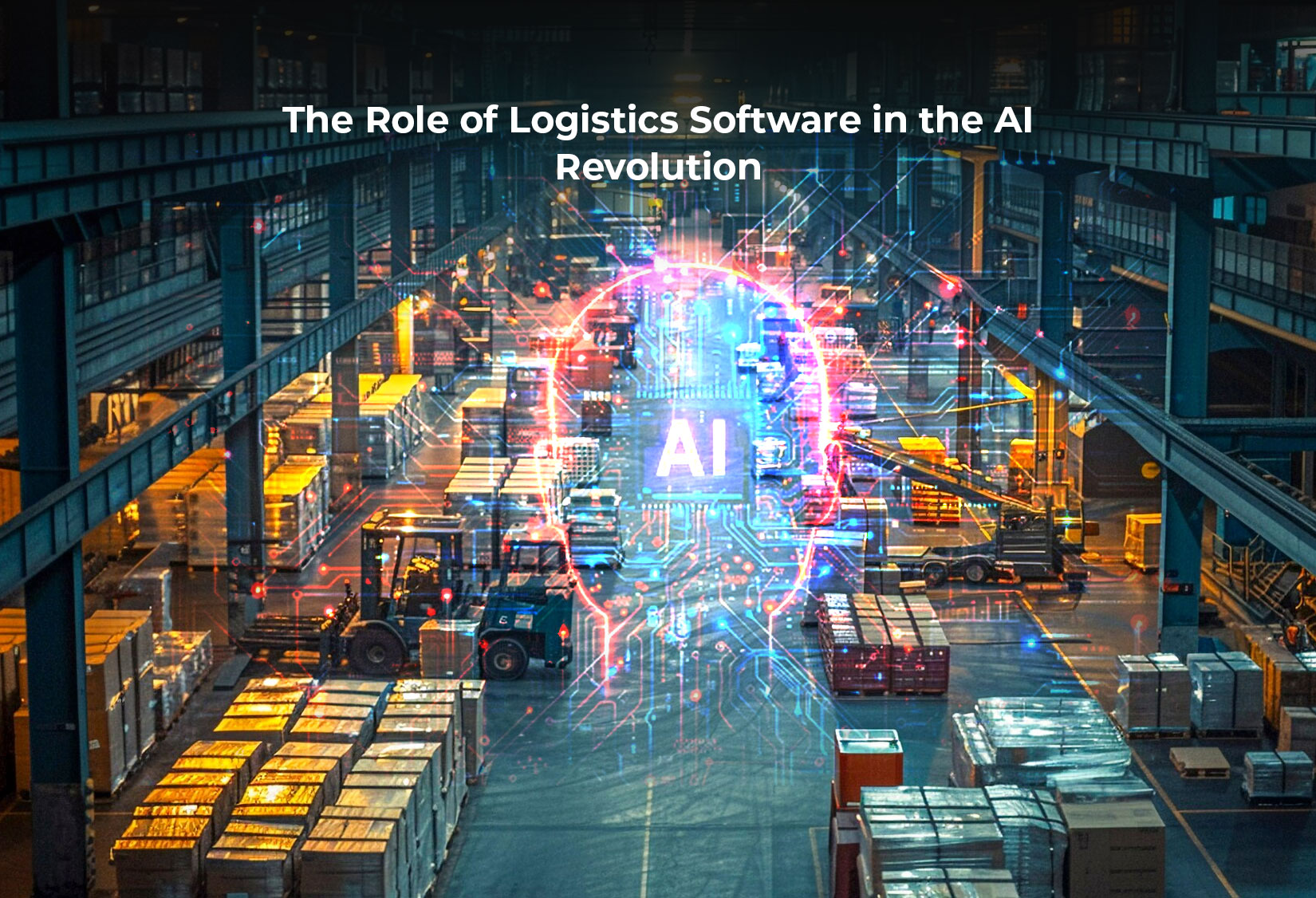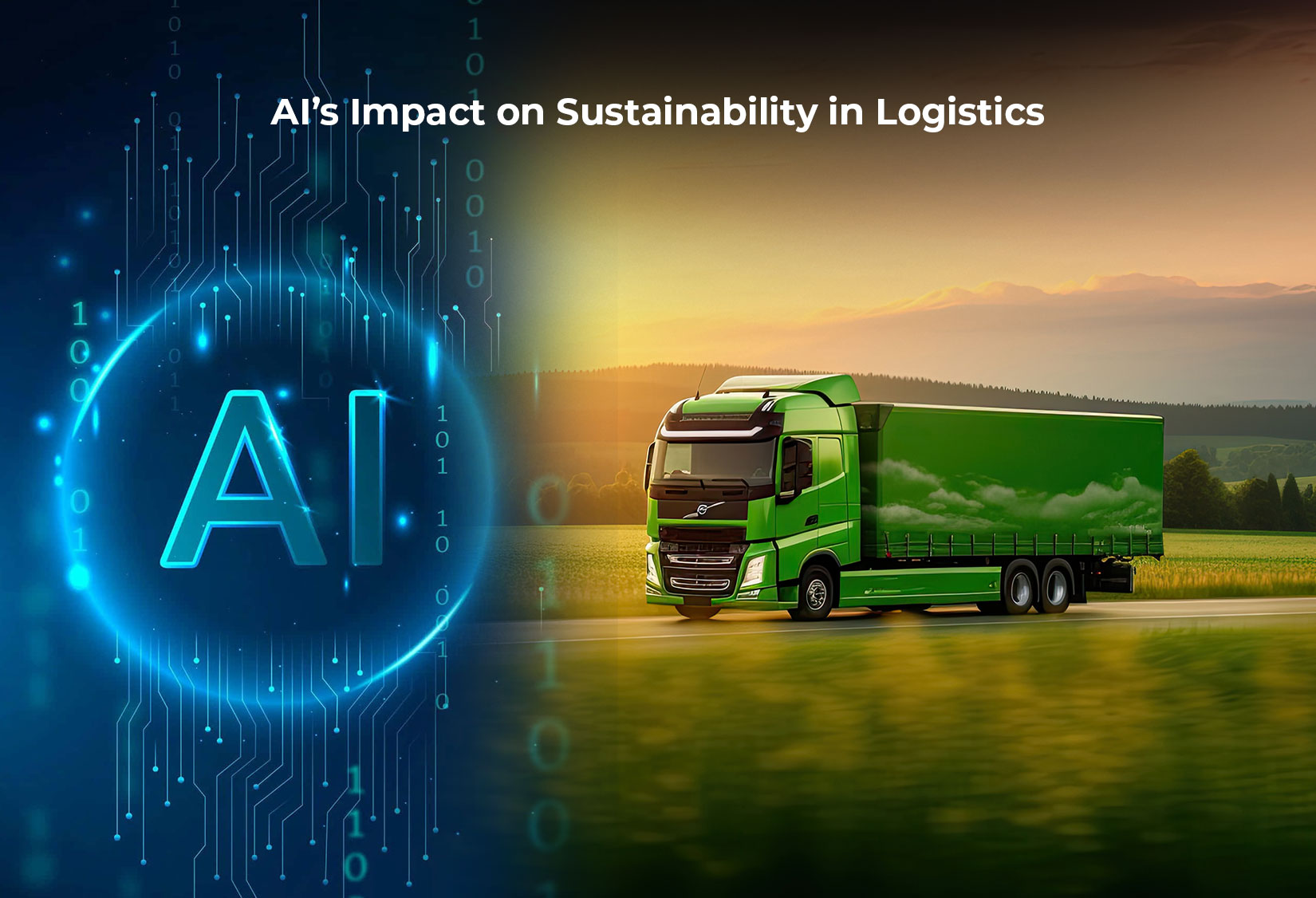
The Future of Logistics: How AI is Transforming Route Optimization and Dispatching
The logistics industry is undergoing a massive transformation, driven by the adoption of artificial intelligence (AI) and advanced technologies. AI is revolutionizing key aspects of logistics operations, particularly in route optimization and dispatching. The global logistics market is projected to reach $12.68 trillion by 2027. Businesses leveraging logistics management software can gain a competitive edge. This article explores how AI reshapes logistics, logistics software’s role, and the future of route optimization.
The Rise of AI in Logistics

Artificial intelligence has become a game-changer in numerous industries, and logistics is not exception. By using machine learning algorithms, AI analyzes vast amounts of data to optimize processes, reduce operational costs and improve decision-making. Logistics companies are increasingly integrating AI-powered logistics management solutions to enhance their operations and improve customer service. These solutions also provide real-time insights into the supply chain.
AI can forecast traffic patterns, analyze historical data and make dynamic routing decisions. This enables companies to reduce delivery times, fuel consumption and operational inefficiencies. According to a report by McKinsey, AI could reduce logistics costs by 10-20%, a significant impact for businesses looking to streamline operations.
AI-Powered Route Optimization
Route optimization is one of the most significant areas where AI is making an impact. Traditionally, logistics managers used manual processes or basic software to plan delivery routes. These methods often led to inefficiencies, higher fuel costs, and delays. In contrast, AI uses real-time data to automatically adjust routes based on factors like weather, traffic, delivery windows, and vehicle performance.
With AI-driven logistics management software, companies can plan the most efficient routes in real-time. This minimizes downtime and ensures deliveries are made promptly. Moreover, AI tools can continuously learn from historical data and optimize future routes, making them more accurate over time. This type of predictive capability is essential for improving overall operational efficiency and reducing costs.
Real-Time Dispatching and Resource Management
AI is also transforming how logistics companies handle dispatching and resource management. Traditionally, dispatching was a manual process that required managers to oversee the allocation of resources and ensure that drivers followed the assigned routes. AI powered logistics management software automates this process, using real-time data to optimize assignment of tasks and resources.
AI-driven systems can consider various factors such as driver ability, vehicle capacity and delivery schedules when dispatching drivers. This ensures that resources are used efficiently and helps minimize the time. Additionally, real-time data allows dispatchers to track the location of drivers, providing accurate ETAs and enabling quicker responses to unforeseen disruptions like accidents or traffic.
The integration of AI in dispatching systems improves customer satisfaction by ensuring on-time deliveries. It also enhances communication with customers. Studies show that 79% of customers are more likely to stay loyal to companies that provide accurate delivery estimates. Timely updates also play a key role in building customer loyalty.
Enhanced Decision-Making with Data Analytics
Another significant benefit of AI in logistics is its ability to process large amounts of data and provide actionable insights. AI-powered logistics management systems analyze data from multiple sources, including GPS, traffic reports and weather forecasts, to predict the best delivery routes. These insights allow logistics managers to make informed decisions, improve the overall flow of goods, and reduce operational costs.
The ability to make data-driven decisions is critical in today’s fast-paced logistics environment. The logistics industry is moving toward greater automation. Companies will rely on AI-powered logistics management software to provide real-time insights and predictions.
The Role of Logistics Software in the AI Revolution

As AI continues to shape the future of logistics, the importance of robust logistics software cannot be overstated. Logistics management systems are at the core of optimizing operations, improving resource allocation, and enhancing customer experiences. These systems provide a centralized platform where logistics companies can manage their entire supply chain, from route optimization to real-time tracking and reporting.
Logistics management software helps businesses streamline their operations by automating repetitive tasks and providing real-time data for decision-making. With integrated AI, companies can reduce costs, improve efficiency, and stay ahead of their competitors. Whether it’s tracking inventory, optimizing routes, or managing dispatching, AI-powered logistics solutions play a vital role in modern operations. These technologies are crucial for driving success in today’s logistics landscape.
Best Logistics Software: What to Look for
When choosing the best logistics software for your business, it’s essential to look for a solution that integrates AI-driven capabilities. Some of the features to look for include:
– Route Optimization: Look for software that uses AI to analyze real-time data and optimize delivery routes for maximum efficiency.
– Real-Time Tracking: Real-time tracking helps dispatchers stay updated on the location of vehicles and shipments, ensuring better control over deliveries.
– Predictive Analytics: AI-powered software that can predict traffic patterns and weather conditions helps logistics companies make proactive decisions.
– Scalability: Choose logistics management software that can grow with your business, accommodating increased demand and complexity over time.
A logistics management solution that integrates these features can improve your operations, reduce costs, and enhance customer satisfaction.
AI’s Impact on Sustainability in Logistics

Sustainability is becoming a key focus in the logistics industry. AI-powered logistics management systems play a critical role in reducing environmental impact by optimizing routes and reducing fuel consumption. By minimizing unnecessary travel and idle time, companies can reduce carbon emissions and lower their carbon footprint.
In addition, AI can help businesses implement more sustainable practices, such as using electric vehicles (EVs) or optimizing warehouse space to reduce energy consumption. As more logistics companies adopt AI-driven software, the industry’s overall environmental impact will continue to decrease.
The Future of Logistics: AI and Beyond
The future of logistics lies in the continued integration of AI, automation, and data analytics. As AI becomes more sophisticated, we can expect even greater improvements in route optimization, dispatching, and resource management. Logistics software will continue to evolve, offering more advanced features like autonomous vehicles, drones, and robotics, further enhancing the efficiency of logistics operations.
The logistics management solutions of tomorrow will not only focus on optimizing routes but also on improving customer experiences. They will also aim at reducing costs and creating sustainable supply chains. Companies that invest in AI-powered logistics management software today will be well-positioned to take advantage of these innovations and remain competitive in the market.
Conclusion
AI is transforming the logistics industry, especially in areas like route optimization and dispatching. By integrating AI into logistics management systems, companies can optimize their operations, reduce costs, and improve customer satisfaction. As AI continues to evolve, the best logistics software will incorporate even more advanced capabilities, driving further efficiency and innovation.
Whether you’re seeking logistics management software, a complete solution like those offered by LogiNext, or the best logistics software for your business, AI is essential. It plays a crucial role in staying competitive in today’s complex logistics landscape. The future of logistics is here, and it’s driven by AI. Click on the red button below and book a demo with LogiNext.
45







@LogiNext